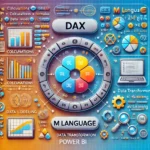SQL Server Management Studio vs. MySQL: A Comparative Analysis
When it comes to managing relational databases, two of the most popular choices among database administrators and developers are SQL Server Management Studio (SSMS) and MySQL. Both of these database management systems have their strengths and are widely used in various industries. In this blog post, we’ll compare SQL Server Management Studio and MySQL in terms of features, performance, ease of use, and licensing. To make it easier to understand, we’ll also provide a comparison table summarizing the key differences between the two.
SQL Server Management Studio (SSMS)
SQL Server Management Studio, often abbreviated as SSMS, is a powerful and comprehensive database management tool developed by Microsoft. It is primarily designed for managing Microsoft SQL Server databases, making it an ideal choice for organizations that rely on Microsoft technologies.
Features of SQL Server Management Studio (SSMS):
- Integration with Microsoft Ecosystem: SSMS seamlessly integrates with other Microsoft products and services, making it an excellent choice for organizations already invested in the Microsoft ecosystem.
- Advanced Security Features: SSMS offers robust security features and tools, such as role-based access control and encryption, to help safeguard your data.
- Rich Development Environment: It provides a rich development environment with features like T-SQL debugging, IntelliSense, and support for SQL Server Reporting Services (SSRS).
- Performance Monitoring: SSMS offers built-in performance monitoring tools, including the ability to track query execution plans and identify performance bottlenecks.
- Scalability: SQL Server is known for its scalability, making it suitable for handling large-scale enterprise applications.
MySQL
MySQL is an open-source relational database management system that is developed and maintained by Oracle Corporation. It is known for its speed, reliability, and ease of use. MySQL is a popular choice for web applications, startups, and small to medium-sized businesses.
Features of MySQL:
- Open-Source: MySQL is open-source, making it cost-effective and accessible to a wide range of users and organizations.
- Community and Enterprise Editions: MySQL offers both community and enterprise editions, providing flexibility in terms of licensing and support options.
- High Performance: MySQL is known for its high-performance capabilities, especially when it comes to read-heavy workloads.
- Cross-Platform: MySQL is available on various platforms, including Windows, Linux, and macOS, making it versatile for different environments.
- Active Community: The MySQL community is active and vibrant, offering support, plugins, and extensions to enhance its functionality.
https://synapsefabric.com/2023/09/04/arch-linux-vs-garuda-linux-an-in-depth-comparison/
Comparison Table: SQL Server Management Studio vs. MySQL
| Feature | SQL Server Management Studio (SSMS) | MySQL |
|---|---|---|
| Developer | Microsoft | Oracle Corporation (Oracle MySQL) |
| License | Commercial | Open Source (Community and Enterprise Editions) |
| Platform Support | Windows | Windows, Linux, macOS |
| Integration | Microsoft Ecosystem | Limited integration with other systems |
| Performance | Excellent | Very Good |
| Ease of Use | Robust and feature-rich | User-friendly and intuitive |
| Security | Strong security features | Security features available, but may require additional setup |
| Scalability | Excellent for large enterprises | Suitable for small to medium-sized businesses |
| Community Support | Limited community support | Active and extensive community support |
In conclusion, choosing between SQL Server Management Studio and MySQL largely depends on your specific requirements, budget, and existing technology stack. SQL Server Management Studio is an excellent choice for organizations deeply integrated into the Microsoft ecosystem, offering a comprehensive set of features and top-notch performance. On the other hand, MySQL’s open-source nature, high performance, and active community support make it an attractive option for startups and businesses with limited budgets.
Ultimately, the right choice will depend on your organization’s unique needs and preferences, so consider your specific use case and resources when making your decision. Both SSMS and MySQL have their strengths and can be powerful tools for managing and working with relational databases.






